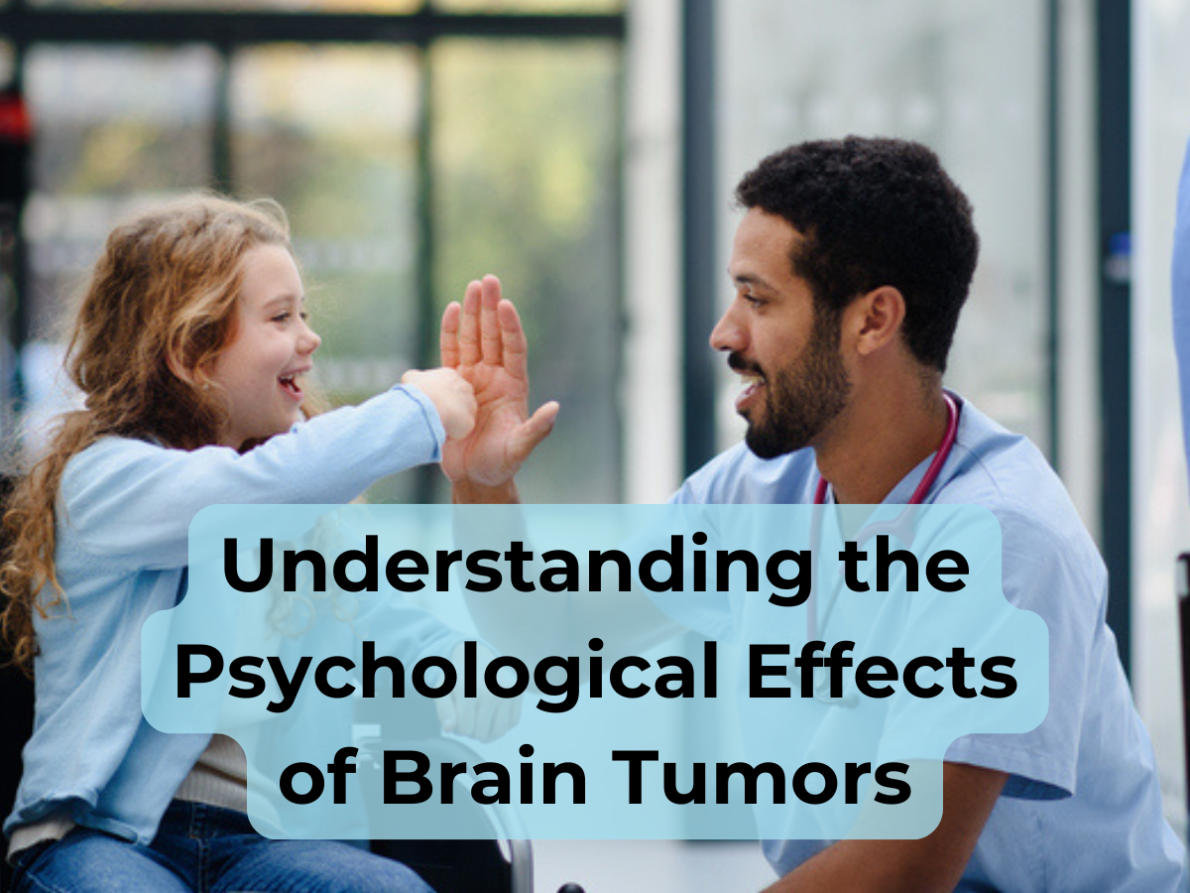Understanding the Psychological Effects of Brain Tumors

A brain tumor diagnosis is a life-changing event that affects both physical and mental well-being. The impact extends far beyond the tumor itself, influencing emotions, thought processes, and behaviors.
Through personalized care, we address not only the physical aspects of treatment but also the emotional and psychological hurdles that arise along the way. Here’s what you need to know about the psychological effects of brain tumors.
The Psychological Toll of Brain Tumors
Brain tumors—whether benign or malignant—can significantly affect mental health. Depending on the tumor’s location, size, and rate of growth, patients may experience:
- Emotional distress: Feelings of anxiety, depression, or anger
- Cognitive difficulties: Issues with memory, concentration, and problem-solving
- Behavioral changes: Mood swings, irritability, or impulsivity
These symptoms often vary based on the tumor’s position in the brain. For example, tumors in the frontal lobe may cause personality shifts and mood regulation issues, while tumors in the temporal lobe can disrupt memory and emotions.
💡 Want to learn more about benign tumors? Learn more from our blog: What Happens If a Benign Tumor Is Left Untreated?
Emotional and Cognitive Challenges

Anxiety and Depression
The uncertainty of a brain tumor diagnosis and its treatment can be overwhelming. Many patients experience heightened anxiety and depression, often due to:
- Fear of the future or prognosis
- Physical discomfort and treatment side effects
- Changes in lifestyle or independence
Patients may also experience stress related to work, family, or financial burdens, intensifying feelings of sadness or worry.
Cognitive Impairment
Tumors can interfere with cognitive functions such as memory, attention, and decision-making, making it difficult to manage daily tasks. These cognitive changes can cause frustration and lead to feelings of helplessness, further affecting mental well-being.
At The Preston Robert Tisch Brain Tumor Center, we help patients manage cognitive symptoms through specialized therapies and medical interventions, ensuring they feel supported throughout their care journey.
Behavioral Changes and Their Impact
Brain tumors can also lead to noticeable behavioral changes. Some patients may struggle with irritability, impulsiveness, or apathy, while others may feel emotionally detached. In some cases, loved ones notice shifts in personality or unusual behavior that can be difficult to understand.
These behavioral changes can strain personal relationships, making it essential for both patients and caregivers to receive emotional support.
Integrating Mental Health into Brain Tumor Care

Our team of doctors takes a holistic approach to treating brain tumors, focusing on physical and emotional health. We believe that addressing mental health challenges is just as important as treating the tumor itself.
Our integrated mental health support includes:
- Counseling and therapy: One-on-one or family sessions to manage anxiety and depression
- Cognitive Behavioral Therapy (CBT): To help patients cope with negative thoughts and improve emotional resilience
- Support groups: Safe spaces for patients and caregivers to connect with others who understand their journey
- Medication management: Addressing mood or anxiety disorders through appropriate medications
- Stress-reduction techniques: Mindfulness, relaxation exercises, and wellness activities
Our goal is to provide patients and their families with the tools they need to manage mental health challenges throughout the treatment process and beyond.
Why Choose The Preston Robert Tisch Brain Tumor Center?
We are committed to delivering world-class medical care with compassion and empathy at the The Preston Robert Tisch Brain Tumor Center at Duke. Our team of over 250 neuro-oncology experts works together to create individualized care plans that address both the physical and psychological effects of brain tumors.
With access to advanced clinical trials and the latest therapies, patients receive cutting-edge treatment within a supportive environment. We prioritize emotional well-being alongside physical health, helping patients and their families feel empowered throughout their journey.
Discover Comprehensive Care at Duke
Navigating a brain tumor diagnosis can feel overwhelming, but you don’t have to do it alone. At The Preston Robert Tisch Brain Tumor Center, we provide the resources and support you need to manage the physical and mental health challenges of treatment.
Schedule an appointment today to learn more about how we can support you or your loved one through every step of the journey. Our integrated approach keeps every aspect of your care tailored to your needs.
Explore our blog to learn more:
- The Impact of Brain Tumors on Mental Health
- How Does Brain Cancer Affect Everyday Life?
- How to Care for Someone with Brain Cancer
FAQ: Understanding the Psychological Effects of Brain Tumors
How does a brain tumor affect daily life?
A brain tumor can make everyday tasks more challenging by affecting memory, concentration, mood, and coordination. Fatigue, irritability, and emotional changes are common, leading to difficulties at work, home, or social interactions. Treatment side effects such as nausea or headaches can also disrupt routines, making it essential to plan for both rest and support.
What are the psychosocial effects of brain tumors?
Brain tumors can impact both emotional and social well-being. Many patients experience anxiety, depression, mood swings, and stress related to uncertainty about their health. Social relationships may be affected, as loved ones may notice behavioral changes. Additionally, feelings of isolation and frustration with cognitive challenges can interfere with social engagement, underscoring the need for emotional support and counseling.
Can a brain tumor cause psychotic behavior?
Yes, though it is rare. Depending on the location and pressure the tumor exerts on certain brain regions, some patients may exhibit psychotic symptoms such as hallucinations, delusions, or irrational behavior. Tumors in the frontal or temporal lobes are more likely to cause such effects. Prompt medical and psychological evaluation is essential in these cases to manage symptoms effectively.
How does brain cancer affect thinking?
Brain cancer can interfere with cognitive functions like memory, attention, decision-making, and problem-solving. Patients may struggle with concentration or experience "brain fog," where thoughts feel scattered or unclear. These cognitive challenges often lead to frustration and may increase feelings of anxiety or depression, making it harder to complete everyday activities. Cognitive therapies and support tools can help manage these changes.